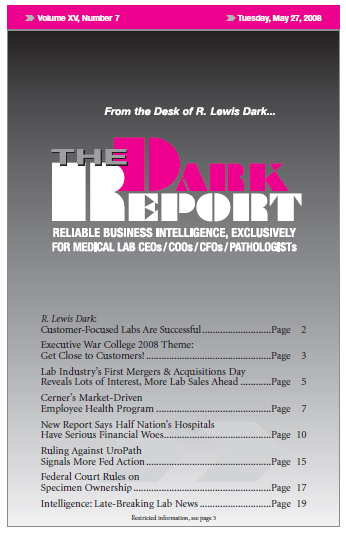CEO SUMMARY: It was a signal win for federal healthcare officials when a federal district court judge in Washington, DC, dismissed a case brought by UroPath, LLC. UroPath had sued HHS Secretary Michael Leavitt seeking to challenge the physician fee schedule final order and the anti-markup rule. The judge’s decision provides Medicare officials with useful […]
To access this post, you must purchase The Dark Report.


